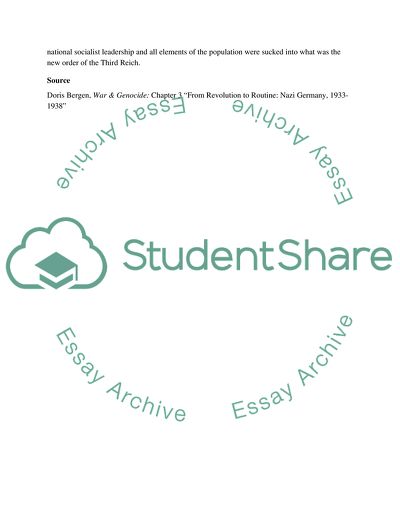From Revolution to Routine: Nazi Germany Example | Topics and Free Essays. https://studentshare.org/history/1894990-precis-essay-chapter-3
From Revolution to Routine: Nazi Germany Example | Topics and Free Essays. https://studentshare.org/history/1894990-precis-essay-chapter-3.


